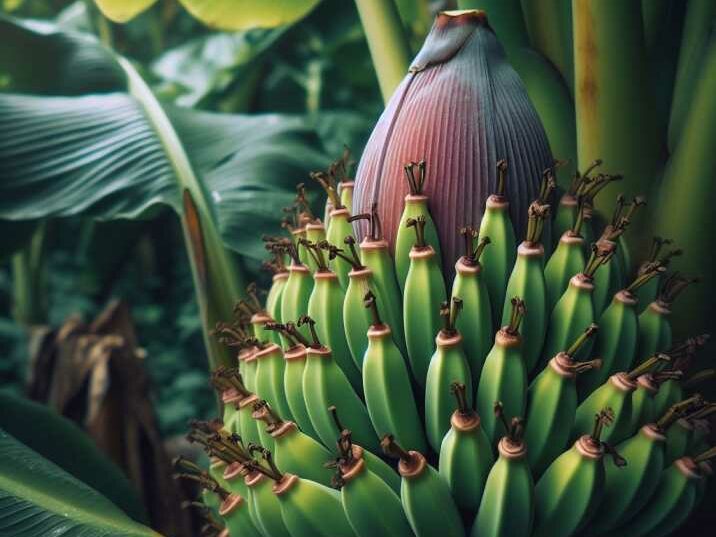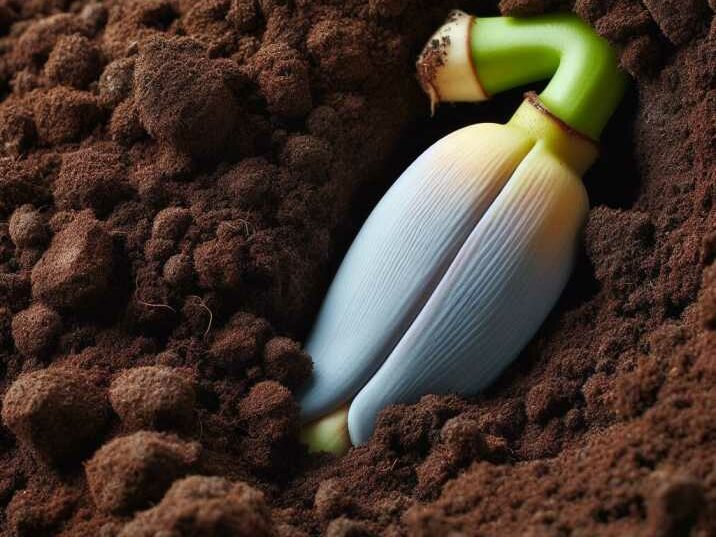Introduction
Table of Contents
In the world of gardening, every element plays a vital role in the overall health and growth of plants. Baby bananas, although small in size, pack a powerful punch when it comes to influencing the neighboring flora. In this comprehensive guide, we’ll explore the fascinating relationship and how baby bananas affect the growth of neighboring plants in a garden.

Baby Bananas Affect the Growth of Neighboring Plants in a Garden
Understanding Baby Bananas
Before delving into their impact on neighboring plants, it’s essential to understand what baby bananas are and how they differ from their larger counterparts. Baby bananas, also known as mini or finger bananas, are petite versions of the well-known Cavendish bananas. They are sweeter, creamier, and typically measure no more than four to five inches in length.
Nutrient-Rich Composition
Despite their small size, baby bananas are packed with essential nutrients that benefit both humans and plants alike. They are rich in potassium, magnesium, vitamin C, and various other vitamins and minerals crucial for plant growth and development.
Soil Enrichment
One of the primary ways baby bananas influence neighboring plants is through soil enrichment. As these fruits decompose, they release nutrients into the soil, providing a natural fertilizer that promotes healthy plant growth. Potassium, in particular, is vital for root development and overall plant vigor.

Pest Deterrent
Believe it or not, baby bananas can also act as a natural pest deterrent in your garden. The strong scent emitted by ripening bananas repels certain pests, such as aphids and fruit flies, helping to protect nearby plants from infestation.
Enhanced Microbial Activity
The decomposition of baby bananas encourages the growth of beneficial microbes in the soil. These microbes play a crucial role in nutrient cycling and soil health, promoting better nutrient uptake by neighboring plants and overall soil fertility.
Improved Water Retention
In addition to providing essential nutrients, baby bananas also contribute to improved water retention in the soil. The organic matter resulting from their decomposition helps to create a more moisture-retentive environment, reducing the need for frequent watering and promoting healthier plant growth.
Natural Mulch
As baby bananas break down, they form a natural mulch layer on the soil surface. This mulch helps to suppress weed growth, regulate soil temperature, and reduce moisture loss through evaporation, creating optimal growing conditions for neighboring plants.
Stimulated Growth Hormones
Research has shown that the ethylene gas emitted by ripening bananas can stimulate the production of growth hormones in plants, leading to increased growth rates and overall plant vigor.
Fruit Production
Interestingly, the presence of baby bananas in your garden can also influence the fruit production of nearby plants. Some studies suggest that the ethylene gas released by ripening bananas can accelerate the ripening process of other fruits, leading to earlier and more abundant harvests.
Overall Garden Health
When combined, the various benefits of baby bananas contribute to the overall health and vitality of your garden. From improved soil fertility to enhanced pest resistance and accelerated plant growth, these tiny fruits play a significant role in creating a thriving garden ecosystem.
Conclusion
In conclusion, baby bananas have a profound impact on the growth and health of neighboring plants in your garden. From providing essential nutrients and promoting soil fertility to acting as a natural pest deterrent and stimulating growth hormones, these small fruits offer a myriad of benefits that contribute to a vibrant and flourishing garden.
Information-Based Table
| Benefit | Description |
|---|---|
| Soil Enrichment | Baby bananas release nutrients into the soil as they decompose, acting as a natural fertilizer. |
| Pest Deterrent | The scent of ripening bananas repels certain pests, protecting nearby plants from infestation. |
| Enhanced Microbial Activity | Decomposing bananas promote the growth of beneficial microbes in the soil, improving nutrient cycling and soil health. |
| Improved Water Retention | Organic matter from banana decomposition enhances soil moisture retention, reducing the need for frequent watering. |
| Natural Mulch | Banana decomposition forms a natural mulch layer, suppressing weed growth and regulating soil temperature and moisture levels. |
| Stimulated Growth Hormones | Ethylene gas from ripening bananas can stimulate the production of growth hormones in plants, leading to increased growth rates. |
| Fruit Production | Bananas accelerate the ripening process of other fruits, resulting in earlier and more abundant harvests. |
| Overall Garden Health | The combined benefits of baby bananas contribute to a thriving garden ecosystem, promoting plant growth and vitality. |
FAQs
- How often should I add baby bananas to my garden?
- It’s best to add baby bananas to your garden as needed, typically during the growing season or when planting new crops.
- Can I use ripe bananas instead of baby bananas?
- While ripe bananas can still provide some benefits, baby bananas are preferred for their smaller size and faster decomposition rate.
- Will baby bananas attract pests to my garden?
- No, baby bananas actually act as a natural pest deterrent due to the strong scent emitted during ripening.
- Can I plant baby banana plants in my garden?
- Yes, you can plant baby banana plants in your garden to enjoy a continuous supply of fresh fruit and additional benefits for neighboring plants.
- How long does it take for baby bananas to decompose?
- Baby bananas typically decompose within a few weeks, depending on environmental conditions such as temperature and moisture levels.
- Are there any plants that should not be planted near baby bananas?
- While baby bananas are generally beneficial to most plants, some sensitive species may be affected by the ethylene gas emitted during ripening. It’s best to avoid planting ethylene-sensitive plants nearby.
